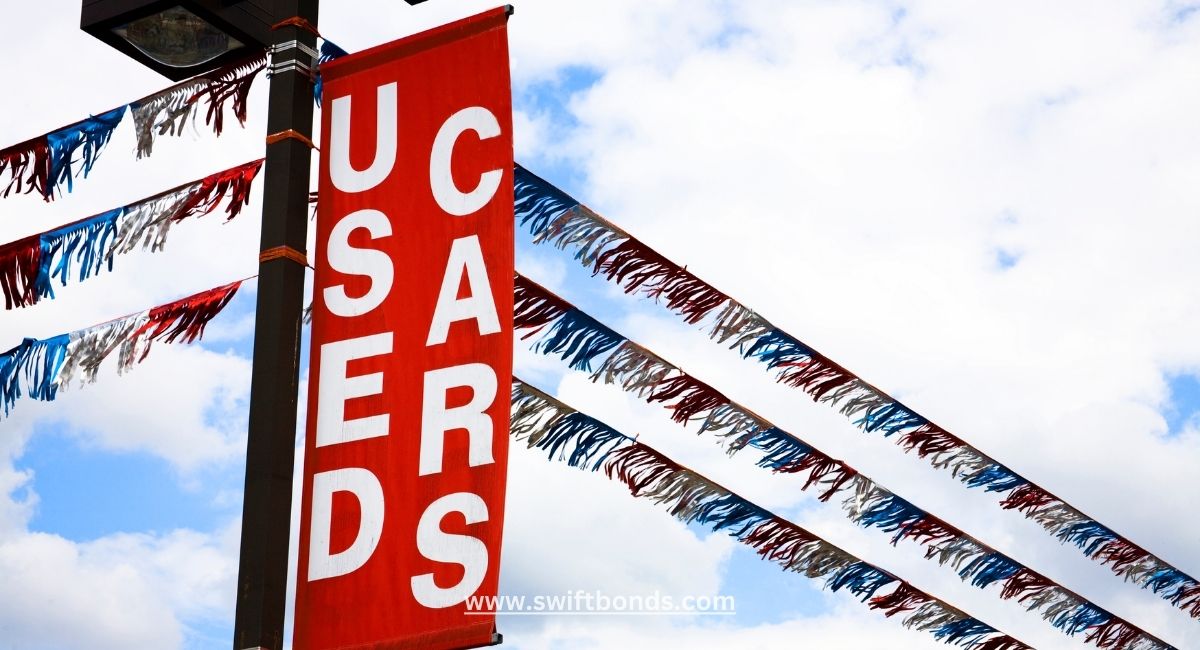Get an Instant Quote on USED Motor Vehicle Dealer Bond
Introduction
The used car industry is heavily regulated to protect consumers and maintain market integrity. In Kansas, individuals and businesses seeking to operate as used motor vehicle dealers must obtain a Kansas - USED Motor Vehicle Dealer ($50,000) Bond before receiving a license. This bond is a legal requirement, ensuring dealers comply with state laws and ethical business practices.
The bond serves as a financial safeguard, protecting consumers from fraudulent activities, misrepresentation, and contract violations. Without it, used car dealerships cannot legally operate in Kansas.

Misconceptions About the Kansas - USED Motor Vehicle Dealer ($50,000) Bond
There is often confusion about the role of this bond. Some dealers mistakenly believe it protects their business from losses. In reality, the bond exists to safeguard customers and the state. If a dealer violates Kansas laws or engages in fraudulent practices, affected consumers or the state may file a claim against the bond to recover damages.
Another misconception is that once the bond is secured, it lasts indefinitely. The bond must be renewed annually to maintain compliance with the Kansas Department of Revenue - Division of Vehicles regulations. A lapsed bond can result in license suspension or revocation.
Guidance on Securing a Kansas - USED Motor Vehicle Dealer ($50,000) Bond
Based on experience, obtaining this bond should be a streamlined process when working with a knowledgeable surety provider. The bond reassures the Kansas Department of Revenue that a dealer is financially responsible and committed to ethical business practices.
Securing the bond enables used motor vehicle dealers to legally operate, build consumer trust, and protect themselves from potential legal disputes.

Steps to Obtain the Kansas - USED Motor Vehicle Dealer ($50,000) Bond
What has been discovered is that obtaining this bond involves several essential steps:
- Verify State Requirements – Kansas has specific bond requirements for used car dealers based on dealership size and sales volume.
- Select a Reliable Surety Provider – Choosing a reputable provider ensures competitive pricing and efficient processing.
- Submit a Bond Application – Applicants provide business details, financial information, and personal history.
- Receive a Bond Quote – The surety evaluates financial risk and issues a cost estimate based on the dealer’s credit rating.
- Pay the Premium – The cost of the bond varies, typically between 1-10% of the total bond amount, depending on financial standing.
- File the Bond with the State – Once issued, the bond must be submitted to the Kansas Department of Revenue - Dealer Licensing Bureau to complete the licensing process.
Adhering to these steps ensures compliance with state regulations and prevents delays in opening or renewing a dealership.

Consequences of Failing to Maintain a Valid Bond
In observation, failing to maintain an active Kansas - USED Motor Vehicle Dealer ($50,000) Bond can have significant consequences, including:
- License suspension or revocation – The Kansas Department of Revenue requires this bond to be active at all times.
- Financial liability for damages – Without a bond, dealers may be held personally responsible for consumer claims.
- Loss of business reputation – A revoked license can lead to trust issues with customers and financial institutions.
- Fines and penalties – The state may impose additional financial penalties for non-compliance.
Maintaining an active bond protects both the dealership and its customers, ensuring smooth business operations.
Compliance with Kansas Surety Bonding Regulations
Kansas enforces strict bonding laws for businesses operating in various industries. Used motor vehicle dealers are required to obtain the necessary bonds to remain compliant and protect consumers.
Beyond auto dealerships, businesses in Sedgwick County, KS that work on public infrastructure must also secure a Sedgwick County, KS - Right of Way Permit Bond. This bond ensures that contractors performing excavation or construction work on public property follow county regulations and restore any affected areas.
Similarly, professionals in the plumbing industry operating in Wyandotte County, KS must obtain a Wyandotte County, KS - Plumber ($5,000) Bond. This bond guarantees that licensed plumbers adhere to local codes and complete work according to safety standards.

Conclusion
The Kansas - USED Motor Vehicle Dealer ($50,000) Bond is a fundamental requirement for operating a used car dealership in the state. It protects consumers, enforces legal compliance, and allows businesses to operate without regulatory interruptions.
Beyond this bond, Kansas requires industry-specific financial guarantees for various business operations. The Sedgwick County, KS - Right of Way Permit Bond ensures responsible public infrastructure work, while the Wyandotte County, KS - Plumber ($5,000) Bond safeguards consumer interests in the plumbing industry.
Securing the required bonds provides businesses with the credibility needed to operate legally and build trust with customers. Partnering with a reliable surety provider simplifies the bonding process, ensuring compliance with Kansas laws and smooth business operations.
Frequently Asked Questions
What does the Kansas - USED Motor Vehicle Dealer ($50,000) Bond cover?
This bond provides financial protection to consumers and the state, ensuring that used motor vehicle dealers comply with Kansas regulations and ethical business practices.
Who needs this bond?
Any individual or business applying for a used car dealer license in Kansas must obtain this bond before receiving approval from the Kansas Department of Revenue.
How long does it take to obtain this bond?
The bond process typically takes a few business days, depending on the applicant’s credit and financial background. Surety providers can expedite the process for qualified applicants.
What happens if a claim is filed against the bond?
If a dealer violates state laws or engages in fraudulent business practices, the state or affected consumers may file a claim. The surety may pay the claim, and the dealer must reimburse the surety for the amount paid.
How much does the bond cost?
The cost of the bond depends on the applicant’s credit and financial stability. Premiums usually range between 1-10% of the bond amount, meaning a dealer could pay between $500 and $5,000 annually.


